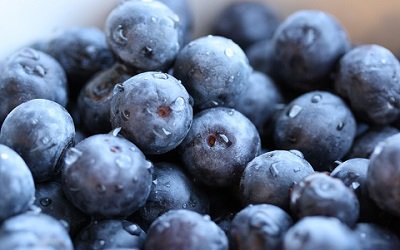Inside BENEO’s new pulse plant: pioneering sustainable protein from faba beans
That’s what a recent research at South Dakota State University, United States of America has reported. Blueberries pack a powerful antioxidant punch, whether eaten fresh or from the freezer, according to South Dakota State University graduate Marin Plumb. Anthocyanins, a group of antioxidant compounds, are responsible for the color in blueberries, she explains. Since most of the color is in the skin, freezing the blueberries actually improves the availability of the antioxidants.
Since blueberries are frozen soon after they are picked, “they are equal in quality to fresh,” Plumb explained. She analyzed the anthocyanin content of blueberries frozen for one, three and five months and found no decrease in antioxidants over fresh berries.
The leaching that occurs from freezing actually increased the anthocyanin concentration, noted Plumb. “The ice crystals that form during freezing disrupt the structure of the plant tissue, making the anthocyanins more available.”
“Blueberries go head to head with strawberries and pomegranates in antioxidant capacity,” said professor Basil Dalaly, Plumb’s research adviser. In addition, blueberries are second only to strawberries, in terms of the fruits Americans prefer.Blueberries are beneficial for the nervous system and brain, cardiovascular system, eyes and urinary tract, Dalaly explained. “Some claim it’s the world’s healthiest food.”
The United States produces nearly 84% of the world’s cultivated blueberries, an estimated 564.4 million pounds of blueberries in 2012, according to the Agricultural Marketing Resource Center.
Antioxidants, such as anthocyanins, eliminate free radicals, which are produced through common biological reactions within the body and outside factors such as the sun, pesticides and other pollutants, Dalaly explained. If left to roam free, these free radicals can attack DNA, proteins and lipids resulting in cellular changes that lead to development of diseases such as cancer.
Although there are no reports about such studies being carried out on other types of berries, this information throws light that a similar phenomenon could be possible in fruits like raspberries or blackberries too. Berries are seasonal fruits which are rather perishable and get spoilt if not stored under cold conditions. Freezing of berries would increase their shelf life multifold and if their anthocyanin content is preserved hence, this could boost their health benefits as well.

